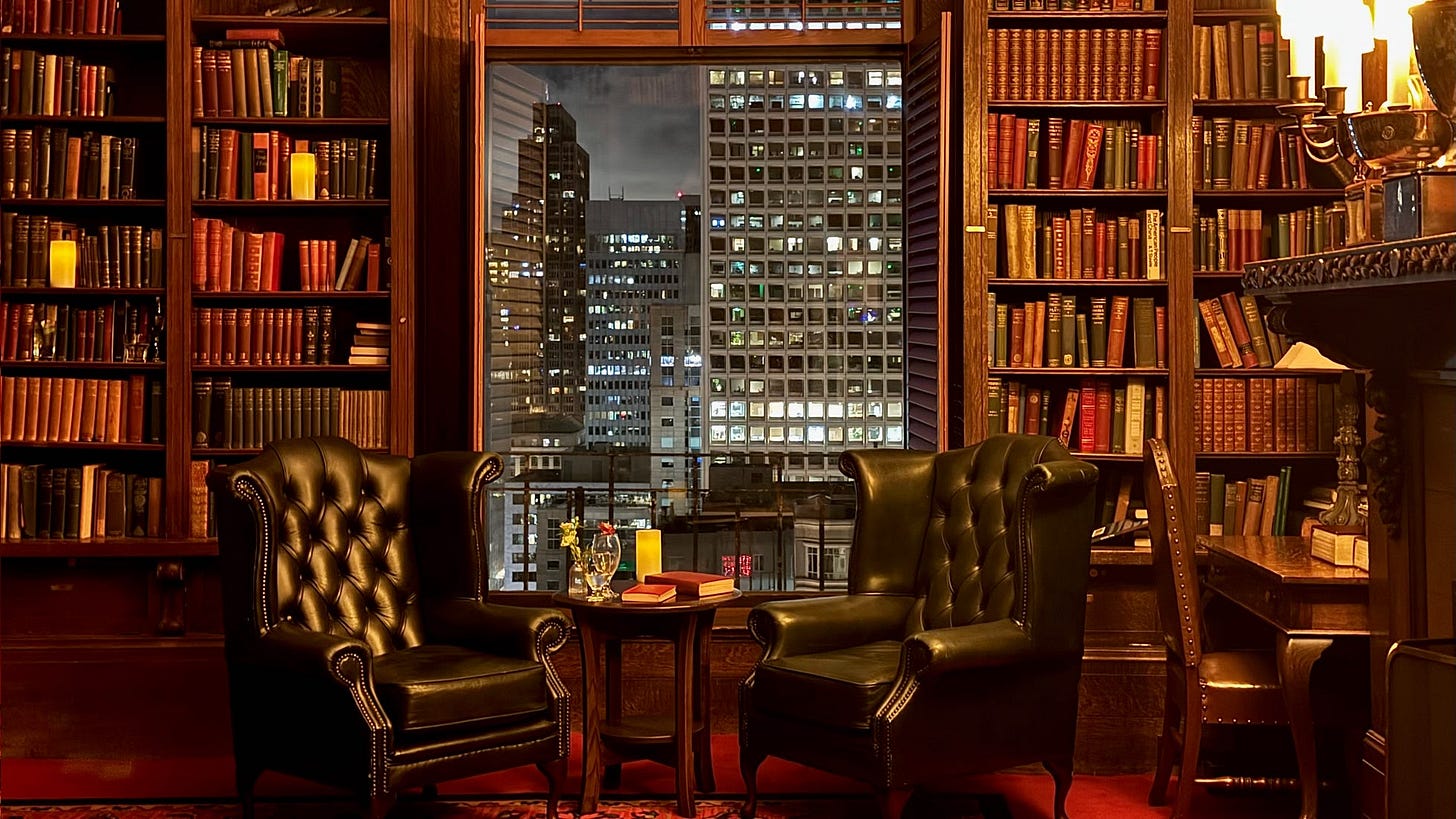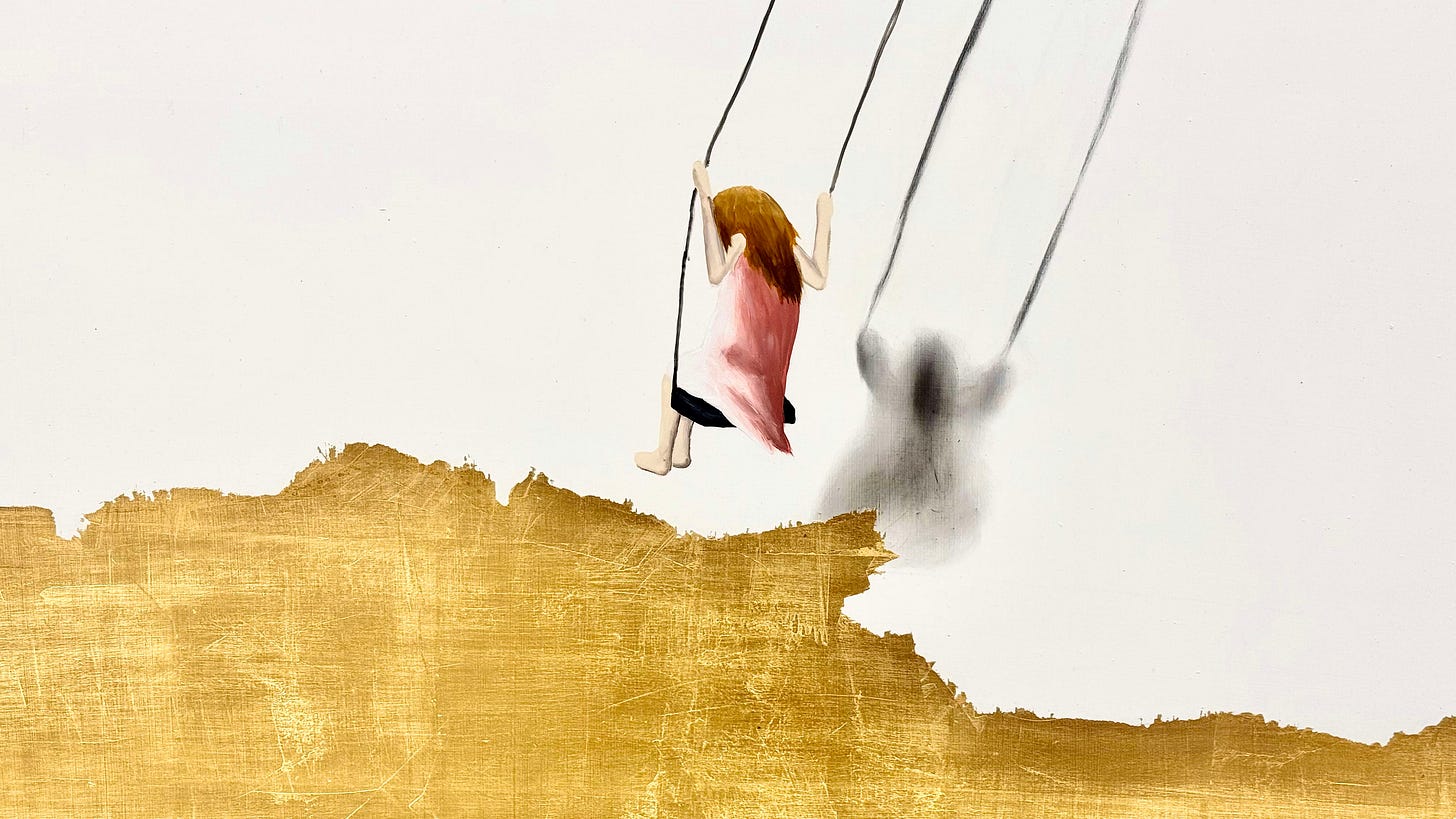This started as a stream-of-consciousness, airplane-mode Notes App scribble that continues from the platform I had when I left finance: The most valuable investment we can make is in our children. And when I joined the software industry: Machines are getting smarter, but the most important intelligence isn’t artificial. If something here invites a question, a reflection, or a thread worth pulling, hit ‘reply’. You’ll land at the top of my inbox. — Daria
I. We recognize a certain kind of mind at once, though no one admits this out loud.
Someone steps into a room and the story rearranges itself around them. They connect dots before the rest of us even see shapes. Their thoughts click together like puzzle pieces, not loose gravel rattling around. We call this intuition and are happy to let it be. But that makes the skill of judgement feel like magic, or something pre-ordained.
Call it judgement, intelligence, taste, or intuition; it can be learned.
Intuition is built by finding the missing pieces. It’s what happens when we’ve built enough of the puzzle in our minds to guess where the next piece goes. It’s why hedge funds hire physicists, why great engineers spot edge cases before they become bugs, and why certain writers always seem to land the ending. They’ve seen this shape before and built up a working memory (a cache!) for coherence.
II. I think the greatest risk of AI in schools is that fewer young people will be incentivized to build their own architectures of how the world works.
It’s a risk to go out and think for yourself. You could be wrong. You could waste cycles and still get the wrong answer. Why reinvent the wheel when you can ape mental models off the latest trending on Twitter? Better yet, the world’s entire domain of public knowledge, trained and fine-tuned by an army of research scientists? Why bother developing your own worldview when you can prompt engineer your way into niche internet relevance on Substack, TikTok, and LinkedInfluence?
Why play the hand you’re dealt when you can reshuffle until you like what you see?
In school, I memorized formulas and theorems, the capitals of countries, the taxonomy of mammals, the year Franz Ferdinand was shot which set in motion the First World War (1914). I got straight A’s. I was the student whom teachers count on to revive class discussions, the girl whom school librarians knew by name, the classmate who never turned in an assignment late. (Yes, really.)
Yet none of it prepared me to handle unexpected loss, uncertainty, disappointment, embarrassment, growing up and growing apart, dreams unfulfilled, human suffering, contradiction, inequity, the Faustian bargain of our age, being the underdog, or a manager who once showed up 35 minutes late to my first executive review with the imprint of a massage chair still on her face. (Yes, that happened too.)
Over time, and through writing, I learned that intuition is democratic.
III. The more pieces we’ve connected, the faster new ones snap into place.
This is harder than it sounds.
Most of us were trained to stuff puzzle pieces in a bag labeled “facts” for a judgement day known as “finals”. We weren’t taught to assemble them into something that resembles a coherent worldview or verifiable set of hypotheses. I worry that by throwing ChatGPT Plus and Study Mode for free at students (ah yes, the classic drug-dealer distribution model), we’re relieving young minds of the hard work of thinking through problems and grappling with their potential solutions.
The trick is to build our puzzle before we need it.

And yet: in a discussion among product leaders last week, everyone agreed it’s much easier to keep generating new attempts with Cursor or Claude Code until we get the ideal prototype than it is to debug an existing one. The dopamine hit of playing poker with a fresh hand is much easier than having to play the hand we’re dealt.
IV. Taste is a consequence of care.
The indie mechanic restoring classic Ferraris has taste.
So does the baker who spent ten years perfecting their croissant dough.
So does the eleven-year-old who keeps rereading the same book until she can quote the emotional beats of every chapter.
In education pedagogy, this is called project-based learning (PBL). Projects force us to apply what we think we know, stretch until the gaps show, and keep going until the pieces lock in. Each time we complete a project, the next one becomes easier because we’ve already laid the track beneath our feet. Over time, we stop solving what’s in front of us. We start seeing where the next piece belongs before we even pick it up.
It’s a strange time to disband the U.S. Department of Education, just as we’re rewriting what it means to earn a living and make a life. Education used to be the scaffolding we trusted to hold us steady as we built ourselves up. Now, as AI answers our questions faster than we can finish asking them, I worry we’ll forget in time how to think for ourselves. So I propose we lead the way: Let’s learn the shape of things well enough to spot what’s missing. Then, let’s find it. Let’s cultivate our minds to see the gaps and develop a taste for what fits. Eventually, we’ll build something whole.
V. That’s how we play the hand we’re dealt.



